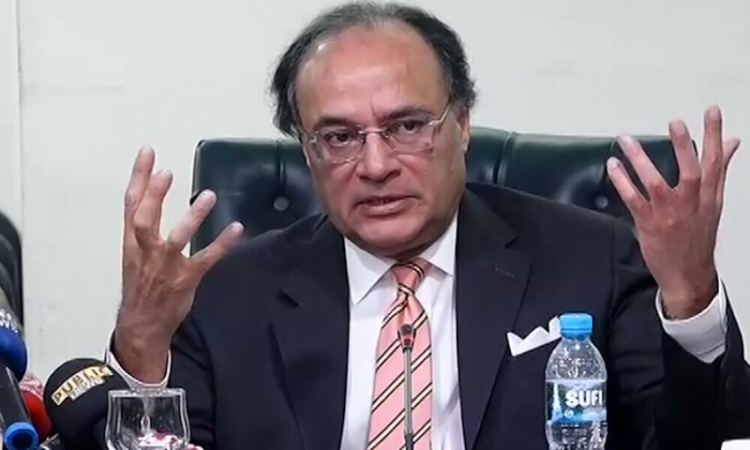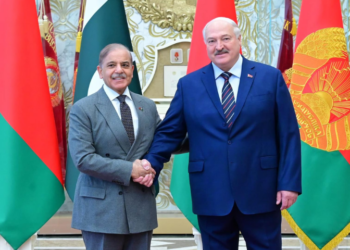Lahore, April 12, 2025: Pakistan’s economy stands at a potential turning point, with its information technology and mineral sectors poised to drive transformational growth, Finance Minister Muhammad Aurangzeb said on Saturday.
Addressing the Lahore Chamber of Commerce and Industry (LCCI), the minister said the government was focused on turning Pakistan into a competitive, export-driven economy — drawing comparisons to Singapore’s meteoric rise through strategic exports, particularly in nickel, which now contributes $22 billion annually.
“Pakistan has the same potential through copper and other critical minerals,” Aurangzeb remarked. “Our aim is to remove barriers and unlock investment opportunities that can reposition the economy on a sustainable growth path.”
He emphasized that under Prime Minister Shehbaz Sharif’s leadership, the government is prioritizing rapid progress and tangible outcomes. “We are listening to the business community and working to resolve their issues,” he said, adding that restoring investor confidence is central to the economic revival strategy.
Aurangzeb pointed to sharp reductions in inflation and interest rates as proof of policy success, noting inflation had dropped to 0.7% in March 2025, down from 20.7% a year earlier, while the benchmark interest rate has been slashed from 22% to 12%.
“Lower financing costs and power tariffs, combined with tax reforms, are essential for industrial expansion,” he stated. “And if our policies don’t directly benefit the common citizen, then we’ve missed the mark.”
The finance minister acknowledged that the salaried class bears a disproportionate tax burden, with deductions at the source, and promised targeted relief. He also revealed that 24 state-owned enterprises have been selected for privatization, with a focus on reducing bureaucratic inefficiencies and human interference in key processes.
Highlighting the importance of private sector engagement, he said, “We are not just making policies in isolation — we are building them in partnership with the business community.”
Aurangzeb also addressed visa difficulties faced by exporters and investors, assuring that the issue is raised during every foreign visit by the prime minister and is being resolved on priority. He further mentioned that a dedicated committee is actively working on GSP Plus-related reforms to enhance Pakistan’s trade competitiveness.
LCCI President Mian Abuzar Shad welcomed the government’s efforts to revive the economy, lauding the drop in interest rates and inflation. He highlighted the “Uraan Pakistan” programme, spearheaded by PM Shehbaz Sharif, which targets $60 billion in exports, $10 billion in annual private investment, one million jobs per year, and significant climate and poverty interventions.
Shad also praised the Special Investment Facilitation Council (SIFC) for strengthening investor confidence.
LCCI Senior Vice President Engineer Khalid Usman urged the government to raise the turnover threshold for withholding agents from Rs100 million to Rs250 million, citing currency devaluation and current fiscal realities.
Vice President Shahid Nazir Chaudhry called for the formulation of a 10-year consistent economic roadmap, warning that policy volatility remains a key challenge for investors.
As Pakistan navigates its path toward economic stabilization and growth, the finance minister’s remarks offered optimism — grounded in reform, supported by data, and framed by a vision of long-term structural transformation.








